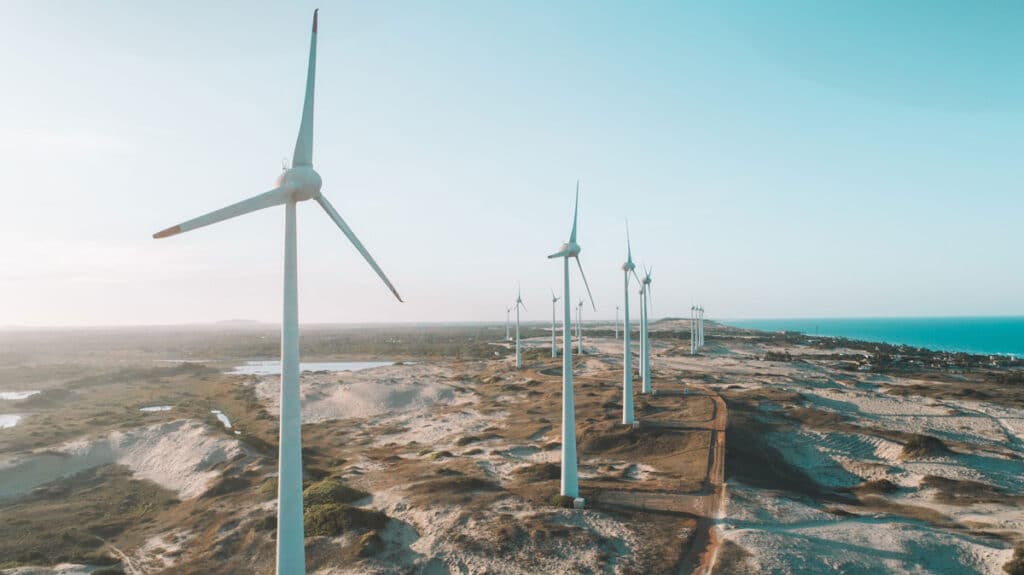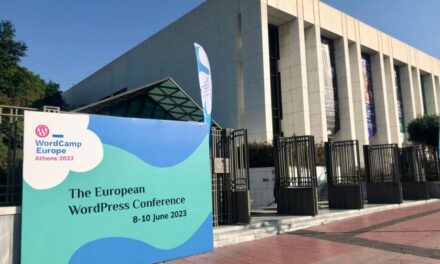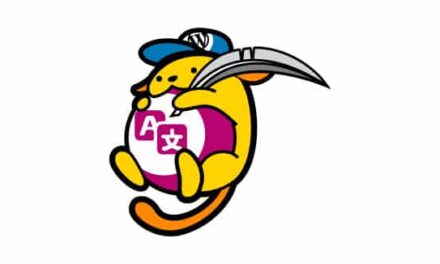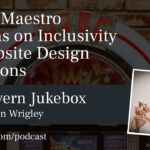If you are familiar with WordPress as a project, you probably know that it is divided into teams for different areas. There is the Core team, the Design team, and the Polyglots team, which we have talked about before. In this post, we want take a look at the newest addition to the roster: the WordPress Sustainability team.
The topic of sustainability first came up during a Q&A session with Matt and Josepha at WordCamp Europe 2022. This also resulted in the establishment of a #sustainability channel in the official WordPress Slack chat to give members of the community a place to discuss this topic.
What quickly followed was a proposal to establish a formal sustainability team on WordPress.org, which promptly happened. They got together for the first time at the Contributor Day of WordCamp Europe 2023. Reason enough to devote an article to learning more about this team and their goals.
What is the WordPress Sustainability Team?

To learn more about the new team, let’s first examine why it was established and the goals behind it.
The Need to Respond to Global Challenges
Climate change is one of the main struggles of our time. The science is pretty clear that human activity is causing it and the impact of increased atmospheric carbon dioxide is becoming more visible every year. New weather extremes and “once in a lifetime” temperatures occur all around the globe. From wildfires over devastating floods to catastrophic storms, we can see the results all around us.
To address the underlying cause and mitigate the outcome, every industry and sector of society has a role to play. That includes the Internet. It has become an integral part of our everyday lives in the last 20+ years. However, it’s easy to forget that it uses up energy and thus produces greenhouse gases as well.
After all, the infrastructure behind the web needs inordinate amounts of electricity for running the required server farms. Plus, there are the devices we use to go online, which use up resources and energy in the same way. Both their number and the amount of Internet traffic are steadily increasing.
As such, some experts estimate that the Internet could be responsible for between 2.1% and 3.9% of global carbon emissions. If it were a country, that would make it the seventh to fifth largest polluter in the world.
Therefore, in order to decarbonize the world economy as a whole, the Internet is definitely a sector that needs to be addressed.
What Can WordPress Do?
Now, you might think that this topic is just something for politicians and people in power. That only they have the responsibility and means to make meaningful changes. However, with WordPress’ position in the online world, it has both an opportunity and maybe a special responsibility to play an integral part in the solution.
First of all, WordPress as a CMS runs 40+% of the web. As a consequence, it can have a big impact on online energy consumption. By setting standards and integrating more sustainable practices, it can reduce the footprint of potentially millions of websites.
Want an example? Danny van Kooten, the developer of the MailChimp for WordPress plugin, managed to reduce the carbon emission of his plugin by 59 tons per month (!) by removing a 20 KB JavaScript dependency. His plugins are running on more than two million websites, so any small change he makes has impacts a much larger scale.
If one plugin can make that much of a difference, just imagine what WordPress Core could do?
Community and Events
Then we have WordCamps, which are attended by thousands of people. People who all need to travel there, find accommodation, eat and drink, etc. while there, which also uses up resources. Introducing more sustainable practices for can also help reduce trash, emissions, and more.
This is especially important for the larger WordCamps (US, Europe, and Asia) as they function as role models for smaller events. If they can adopt more eco-friendly practices, it can set an example for the rest. Especially since they all use the same handbooks.

Finally, the WordPress community is made up of hundreds of thousands of people. Promoting more sustainability can affect a lot of individual behavior as well.
In short, WordPress can not only have an actual, measurable impact but also provide leadership for the WordPress ecosystem and beyond. It also goes well with WordPress’ mission of building a better web. In this day and age, sustainability is one of the ways the Internet needs to be better.
What’s the Goal of the Sustainability Team?
So, how does the Sustainability team plan to help WordPress meet these challenges and take on a leadership role? In their own words:
The main objective is to embed sustainable practices into WordPress processes and its community, […] to promote awareness and actions that lead to carbon footprint reduction throughout the WordPress ecosystem.
As to how to achieve this, the approach is threefold:
- Spread awareness about the impact of carbon emissions generated by the web and ways to work with and build websites in more eco-friendly ways. To help users understand how websites impact the climate and ways to mitigate their effect.
- Provide guidance for WordPress event organizers on how to run events in more sustainable ways.
- Creating and promoting eco-friendly themes and plugins.
It’s important to note that while environmental sustainability is the main focus of the team, there are other areas that it aims to address. Among them is finding ways to bring new and more diverse members to the WordPress community, support contributors, ensure the economic sustainability of the WordPress project, and more.
The establishment of a formal team for sustainability is also a sign in itself. It means that WordPress acquires ways to provide a clearer direction in this area and formalize guidelines for its implementation. It also simply increases visibility for this topic in the WordPress project. In addition, there are ample ways to collaborate with and have a positive impact on other WordPress teams such as Accessibility, Performance, and Community.
Tapping Into an Ongoing Conversation
What’s important to stress is that this discussion isn’t entirely new, it is only that it’s starting to receive the attention it deserves. For example, there was another sustainability initiative around Abha Thakor a few years ago and she spoke on the subject at WordCamp Stuttgart in 2019.
In addition, at this year’s WordCamp Europe, in the panel about the future of WordCamps, sustainability was one of the main topics. Former WCEU organizers talked about how they tried to integrate more sustainable practices into the event and how they have tried to pass on the idea to organizers of subsequent WordCamps since. You can find the discussion in the video below.
Plus, other open source projects, such as Drupal and Wagtail, have similar initiatives. Overall sustainability is something that’s generally becoming more prominent. By forming a dedicated team, WordPress now has the possibility to put in the energy and effort this topic deserves.
What Has the Sustainability Team Done So Far?
Since the start of the effort to create a WordPress team on sustainability, we have already seen some promising initiatives.
Collect Community Feedback
One of the first things that those community members who would later form the Sustainability team did was to consult the WordPress community what their vision for a sustainable WordPress looks like. In a post, the team asked to what the community’s understanding of sustainability is and how they see WordPress implementing it.
This sparked a lively discussion with lots of input and a number of interesting ideas, such as:
- Implementing the ability to mark and sort themes in the WordPress directory with a “sustainable” tag.
- Including tips in WordPress themes that guide users to more sustainable design choices. Maybe even use the upcoming Twenty Twenty-Four theme to show off best practices in eco-friendly design.
- Educating community members how to introduce more sustainability into their individual lives.
- Working with hosting providers to encourage more sustainable practices on their servers and the way they run websites. Educating users on what kind of hardware they actually need to avoid idling unnecessarily powerful hardware.
I highly encourage you to check out the post and read up on the many ideas our community members came up with. The Sustainability team also put their own thoughts into writing that you can read on a dedicated website.

#sustainability Slack Channel
The sustainability channel remains active. In about a year it has grown to more than 200 members (237 at the time of this writing). They are holding regular meetings, which are announced and summarized on the Make channel.

Draft a WordCamp Sustainability Document
Several contributors are working on a Google document with guidelines how to make WordCamps more sustainable. It documents efforts from previous organizers and provides suggestions for future events. Tips include:
- Picking a venue that is easy to reach via public transportation and certified in sustainability practices.
- Avoiding plastic tableware other single-use items.
- Sending out a headcount email shortly before the event to get a more accurate number of attendees to order the right amount of food. Working with local food banks to donate excess foodstuffs.
- Reduce the amount of swag given out. Alternatively, provide the option for attendees to opt in to swag instead of making it the default
- Gear event marketing more strongly towards encouraging attendees to use sustainable modes of transportation and other eco-friendly practices
Once finished, the document will be shared with the Community team to make it part of the handbooks for Meetup and WordCamp organizers. Plus, it will likely be amended and built upon over time by collecting practices from future events.
WordPress Sustainability Plugin
There is a plugin called WPSustainable created by members of the WordPress Hosting team. Similar to Site Health, when you install it on your site, it displays the eco-friendliness of the hosting provider used for and carbon emissions caused by the website in question.
What’s Next?
Besides what they have already done, the Sustainability also has plans for the future. They have been brainstorming a roadmap that is publicly available. It contains ideas such as:
- Designing guidelines for low-bandwidth connections.
- Exploring possibilities for collaborating with other teams and existing programs such as Five for the Future.
- Thinking about how to attract more diverse voices to the team and WordPress community.
- Brainstorming ways to measure the impact WordPress has on energy consumption and greenhouse gases.
- Looking to other open source initiatives focused on sustainability and integrating their learnings into WordPress.
You can read up on the document under the link above and also add your own suggestions.
Want to Get Involved With the WordPress Sustainability Team?
Sustainability, especially environmental sustainability, is a topic of global importance to meet current world challenges. As one of the biggest energy consumers, the Internet is one of the sectors where implementing sustainability practices is sorely needed.
Being the leading content management system puts WordPress in a position to take point in this matter and affect change in various ways. The Sustainability team formed to develop visions and practices for doing so.
Though it has only been around for a short while, already some great initiatives have come out of it and there is more on the horizon. If you want to get involved, join the Slack channel and regular meetings. Here you can give your input on existing initiatives as well as provide your ideas for how the WordPress community can approach the topic of sustainability and make changes for the future.
What sustainability initiatives would you like to see in the WordPress ecosystem? Share your thoughts in the comments section!














